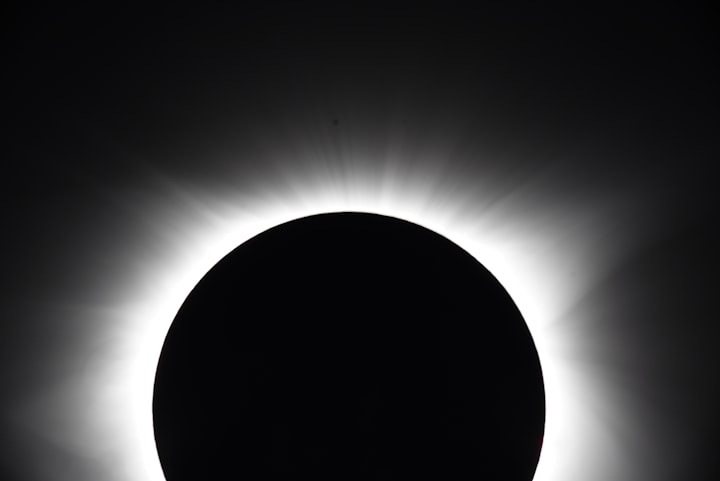
Few occurrences in the wide tapestry of cosmic phenomena captivate the public's attention like a solar eclipse. We witness an amazing spectacle of the magnificence of nature as the moon artfully positions itself between the Earth and the sun, throwing a shadow across our planet. This article explores the complexities of solar eclipses, including their scientific underpinnings, cultural significance, and long-lasting effects on humankind.
The Understanding of Solar Eclipse Science:
The exact alignment of the sun, moon, and Earth causes solar eclipses. The moon periodically makes a straight pass between the Earth and the sun while it circles our planet, blocking the sun's light and creating shadows on the surface of the Earth. Total, partial, and annular solar eclipses are the three main kinds, and they are distinguished by the extent to which the moon blocks the sun.
A total solar eclipse occurs when the moon totally obscures the sun, resulting in total darkness in the region it casts a shadow over. The term "syzygy" refers to the perfect alignment that results when the moon and sun appear to be the same size. An annular eclipse happens when the moon is at its furthest point from Earth, appearing smaller and with a ring of sunlight visible around its borders. Partial eclipses happen when the moon covers just a portion of the sun.
Each eclipse produces a different narrow strip known as the path of totality, where the moon completely blocks out the sun. Those who are fortunate enough to follow this road are in for a strange and unforgettable experience. The temperature drops and wildlife may start acting strangely as the sky grows darker and more stars can be seen. We are reminded of our position in the vastness of the universe during this time of profound connection with the cosmos.
Historical and Cultural Significance:
Solar eclipses have been deeply significant to cultures all over the world for a very long time. These celestial occurrences were frequently seen by ancient societies as omens or divine signs. Ceremonies and rituals were carried out in some societies to ward off or placate perceived evil entities. For example, the ancient Chinese interpreted a solar eclipse as a dragon consuming the sun, while the Greeks interpreted it as a symbol of the gods' wrath.
Scientific discoveries have also been greatly aided by solar eclipses. One of the most well-known instances is the 1919 solar eclipse, which supported Einstein's general theory of relativity when scientists saw the bending of starlight close to the sun. Even in modern times, eclipses still astonish and amaze people while providing chances for research and public outreach.
Contemporary Observations and Discoveries:
Thanks to technological developments, scientists can now examine solar eclipses in unprecedented detail, providing new insights into the complex processes of our solar system. Through studying the behavior of the sun's corona, or outer atmosphere, during an eclipse, scientists can learn important details about solar flares and magnetic fields. In addition to their scientific contributions, citizen scientists take pictures and gather data that broadens our understanding of the universe.
Solar eclipses are significant not only from a scientific standpoint but also from a cultural and spiritual standpoint for many nations worldwide. Eclipses are viewed as chances for reflection, rejuvenation, and spiritual development in certain indigenous cultures. They act as a constant reminder of the interdependence of all life and the cyclical character of the universe.
During a solar eclipse, we are reminded of the wonder and mystery of the cosmos as we look up at the sky. We become one in our sense of amazement and awe during those few moments of heavenly alignment. Solar eclipses never cease to awe us and pique our curiosity about the secrets of the universe, whether they are seen from a scientific, spiritual, or just plain beautiful perspective.
About the Creator
Furkan Ö.
I am a young writer who can write on any topic. I may not be able to change the world with my words, but I can stir thoughts with my writing. I will continue to write for my followers, fans, and future readers.






Comments
There are no comments for this story
Be the first to respond and start the conversation.